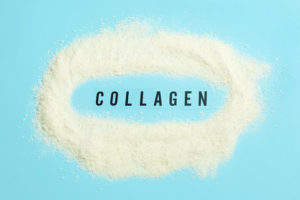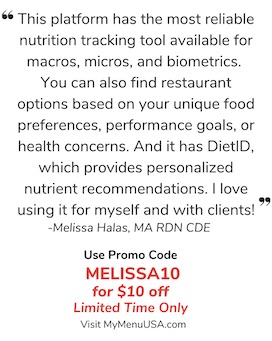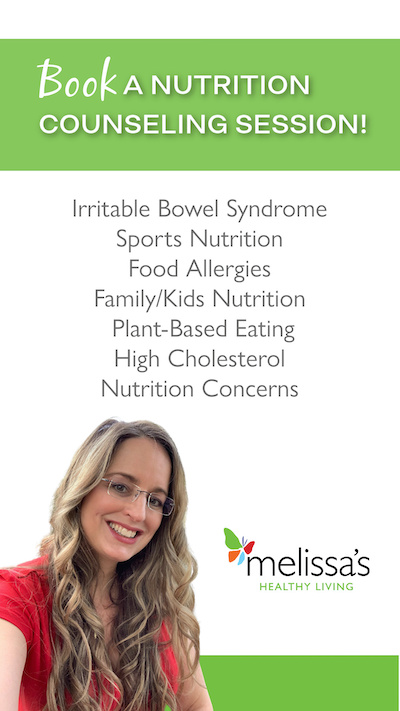
Collagen peptides have anti-aging and joint health benefits that you may be interested in, so take a look at this review of the best collagen for your skin.
This post contains affiliate links. As an Amazon Associate, we earn from qualifying purchases. The links are noted with an asterisk (*).
If you’re looking to take collagen supplements for youthful skin, you’re in the right place. Let’s face it, we are all getting older every day, and becoming the targets of anti-aging ads in the process. While I don’t believe in drawing worth from our outward appearances (I EARNED these wrinkles!), it’s hard to refuse the natural, positive effects of an affordable, scientifically backed supplement or cream – especially one that has additional health benefits.
Many of us focus on feeding our bodies food that helps them thrive, so why not give our skin that same lending hand with collagen? However, it’s worth noting that a diet high in phytonutrients and antioxidants, especially carotenoids and anthocyanins promote UV protection and a healthy glow. Including leafy greens, pumpkin, sweet potatoes, blueberries, and raspberries regularly for skin health is a smart choice (food first, always!).
In my recent post, Do Collagen Supplements Work for Reducing Fine Lines?, I concluded that collagen supplementation has the power to improve skin hydration and elasticity and can reduce wrinkles. After those findings, it was time to try it out for myself. With an allergy to pork, and having a hard time with the thought of eating chicken collagen, my options are limited to the marine form (which I’ve heard doesn’t have the most pleasant taste). It was difficult to become motivated to commit to drinking or eating something every day if the benefit is only skin-deep and tastes fishy (in the case of marine collagen peptides). With the potential benefits for joint health too, I knew I’d be more likely to commit.
Later in this post, you’ll get a brief look at how much collagen to take for joint health for any avid exercisers who want to protect their hinges! As always, I consulted the research and am ready to share my knowledge with you.
Types of Collagen
If you need a refresher on what collagen is, quickly go back to my first collagen post with the link above. It’s important to note that there are several different types of collagen. Plus, the body processes collagen and collagen peptides differently. This is because collagen peptides are collagen broken down into a form easier for the body to digest. This breakdown results in enzymatically hydrolyzed collagen or collagen peptides (including collagen tripeptides). Collagen peptides are the type of collagen you often see on store shelves and online. When it comes to joint health, there is another type of animal product to consider as well. Here are a few different types of supplements to become familiar with.
Peptides, tripeptides, and cartilage, oh my! Which to choose?
- Collagen peptide supplements: These are also referred to as collagen hydrolysate, include tripeptides and are believed to be the best utilized. (12)
- Verisol is a branded form of collagen peptides and is made of type I collagen peptides. It is derived from pigs and is the most studied supplement – it has shown to be very effective for decreasing wrinkles and improving skin elasticity. (12)
- Collagen tripeptides are a type of collagen peptide that contains 3% glycine-proline-hydroxyproline also shown to improve elasticity, hydration and decrease wrinkles.
- There are grass-fed, pasture-raised options for bovine sourced collagen peptides, but as always, do your research on the safety of the supplement and third-party testing.
- Undenatured type II collagen (UC-II): This is made from real chicken cartilage and naturally contains a small amount of unhydrolyzed collagen, which could relieve joint pain. It isn’t recommended for skincare.
How much do I take and how often?
Here are the recommended dosages which will vary based on the benefits you are looking for:
- Skin:
- My last post showed that 1-3 grams of collagen peptides had varying degrees of significance in improving the youthful appearance of skin.
- Consumer Labs recommends a dose of 2.5 grams of hydrolyzed collagen per day (taken once or divided into two servings per day).
- Joints: Choose from the recommendations below.
- Consumer Labs recommends taking 1-9 grams of hydrolyzed collagen daily for at least 3 months.
- The International Olympic Committee recommends hydrolyzed collagen in a higher dose of 10 grams per day.
- Other research suggests 40 mg of UC-II daily, which provides 10 mg of collagen (taken once or divided into two servings per day).
Recommended Brands, Doses, and Benefits
- I alternate between Jarrow Formula Collagen and Vital Proteins Marine Collagen. I’ve found a noticeable improvement in my hair, skin, and joints!
|
Brand |
Source |
Benefit |
Type |
Dosage |
|
Vital Proteins Marine Collagen*
|
Wild-caught fish |
For both joint and skin | Collagen peptides from white fish |
12 grams (2 scoops)
|
| Jarrow Formula Collagen* | Sustainably farmed fish | For both joint and skin | Collagen peptides (type 1 complex) from Talipa and Catfish | 5 grams (6 tablets) |
|
Marine |
For both joint and skin |
Collagen peptides |
5 grams of collagen (1 scoop) |
|
|
Pigs |
Skin |
Collagen peptides—Verisol |
2.5 grams of collagen (4 capsules) |
|
|
Pigs |
Skin |
Collagen peptides–Verisol |
2.9 grams of collagen (2 teaspoons) |
|
|
Chicken |
Joints |
Chicken cartilage with undenatured Type II collagen |
40 milligrams (capsule) which is 10 mg of collagen, but the UC-11 version shows joint benefits at a low dose |
|
|
Great Lakes Gelatin Collagen Hydrolysate* (grass-fed and pasture-raised) |
Bovine |
For both joints and skin |
Collagen peptides |
12 grams of collagen (2 teaspoons), just take once a day not twice as suggested on the label |
|
Vital Proteins Collagen Peptides* – unflavored (grass-fed and pasture-raised) |
Bovine |
For both joints and skin |
Collagen peptides |
2 scoops is one serving, which is 20 grams of collagen (adjust according to goal) |
|
n/a |
For both joints and skin |
Collagen peptides + vitamin C |
6 grams of collagen and 60 mg of vitamin C (6 tablets) |
(+) appropriate for individuals who cannot ingest pigs or chicken for religious or health reasons
Other Key Takeaways on Collagen
- The FDA does not monitor the efficacy or safety of collagen powder unless it makes a claim to cure or treat a disease. That is why it’s important to read the research and utilize effective and safe products!
- Another way to identify trustworthy products is by looking for signs of third-party testing (e.g., NSF, UL, or USP), or by looking on Consumer Labs. Some large companies have even stricter measures than third parties, so make sure to do your research – don’t hesitate to reach out to the company directly and ask any questions you want answered! You can also work with a registered dietitian when evaluating supplements.
- If using collagen in its powder form, try adding it to a smoothie bowl, smoothie, yogurt, oatmeal, coffee or tea, soup, protein shake, or baked good.
If you decide to supplement with collagen, follow the instructions above and let me know how it goes in the comments below! In 12 weeks, I will share my own experience about whether or not I am able to commit to the taste, cost, and if I see an improvement similar to the research. And don’t forget, I’ll be covering more on collagen for bone and joint health soon!
If you like this article and want to see more content like it, leave a comment and share a nutrition or fitness topic you’d like to learn more about!
Articles Reviewed or Cited
- Karpouzos A, Diamantis E, Farmaki P, Savvanis S, Troupis T. Nutritional Aspects of Bone Health and Fracture Healing. J Osteoporos. 2017;2017:4218472-4218472.
- Webinar of Skin, Bone & Muscle – Three GOOD Reason for Collagen, Nutrition Entrepreneur DPG Viewed on 09/30/2019.
- Rittié L, Fisher GJ. Natural and sun-induced aging of human skin. Cold Spring Harb Perspect Med. 2015;5(1):a015370-a015370.
- Varani J, Dame MK, Rittie L, et al. Decreased collagen production in chronologically aged skin: roles of age-dependent alteration in fibroblast function and defective mechanical stimulation. The American journal of pathology. 2006;168(6):1861-1868.
- Ganceviciene R, Liakou AI, Theodoridis A, Makrantonaki E, Zouboulis CC. Skin anti-aging strategies. Dermatoendocrinol. 2012;4(3):308-319.
- Proksch E, Schunck M, Zague V, Segger D, Degwert J, Oesser S. Oral intake of specific bioactive collagen peptides reduces skin wrinkles and increases dermal matrix synthesis. Skin pharmacology and physiology. 2014;27(3):113-119.
- Proksch E, Segger D, Degwert J, Schunck M, Zague V, Oesser S. Oral supplementation of specific collagen peptides has beneficial effects on human skin physiology: a double-blind, placebo-controlled study. Skin pharmacology and physiology. 2014;27(1):47-55.
- Kim D-U, Chung H-C, Choi J, Sakai Y, Lee B-Y. Oral Intake of Low-Molecular-Weight Collagen Peptide Improves Hydration, Elasticity, and Wrinkling in Human Skin: A Randomized, Double-Blind, Placebo-Controlled Study. Nutrients. 2018;10(7):826.
- Schwartz SR, Hammon KA, Gafner A, et al. Novel Hydrolyzed Chicken Sternal Cartilage Extract Improves Facial Epidermis and Connective Tissue in Healthy Adult Females: A Randomized, Double-Blind, Placebo-Controlled Trial. Alternative therapies in health and medicine. 2019;25(5):12-29.
- Schwartz SR, Park J. Ingestion of BioCell Collagen(®), a novel hydrolyzed chicken sternal cartilage extract; enhanced blood microcirculation and reduced facial aging signs. Clin Interv Aging. 2012;7:267-273.
- Choi FD, Sung CT, Juhasz ML, Mesinkovsk NA. Oral Collagen Supplementation: A Systematic Review of Dermatological Applications. Journal of drugs in dermatology : JDD. 2019;18(1):9-16.
- Papakonstantinou E, Roth M, Karakiulakis G. Hyaluronic acid: A key molecule in skin aging. Dermatoendocrinol. 2012;4(3):253-258.
- Monro JA, Leon R, Puri BK. The risk of lead contamination in bone broth diets. Medical hypotheses. 2013;80(4):389-390.
- Review of Collagen Supplements – For Skin and Joints. ConsumerLab.com. https://www.consumerlab.com/reviews/Collagen_Supplements_Review_Peptides_Hydrolysate/collagen/. Published 2019. Accessed October 1, 2019.
- Brincat M, PhD, Kabalan, S. MD, et al. A study of the decrease of skin collagen content, skin thickness. Obstetrics and Gynecology.1987;70(6).
- https://bjsm.bmj.com/content/52/7/439




